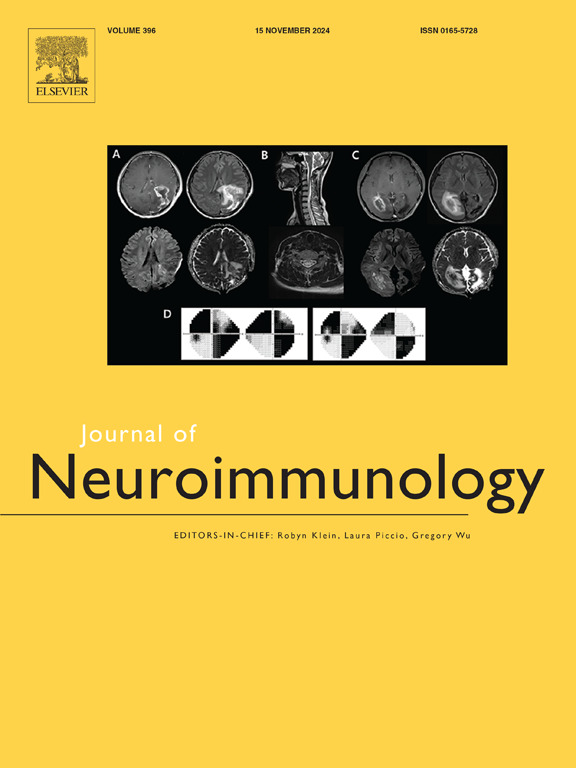Sugar utilization by microglia in Alzheimer's disease
IF 2.9
4区 医学
Q3 IMMUNOLOGY
引用次数: 0
Abstract
Diabetes is a major risk factor for Alzheimer's disease (AD), yet the effect of specific carbohydrate sources in the diet on AD pathology remains unclear. The primary neuroimmune cell, microglia, undergo a metabolic shift during neuroinflammation associated with AD pathology. We utilized existing gene expression data and identified changes in sugar transporters (increased Slc2a1 (glucose) and decreased Slc2a5 (fructose) expression). To examine gene expression with respect to primary sugar source, N9 cells, a mouse microglia cell line, were cultured in glucose or fructose supplemented media and stimulated with lipopolysaccharide (LPS). RNA-sequencing analyses indicated significant changes between control and sugar supplemented media and several differentially expressed genes between glucose and fructose media. Concurrently, 5XFAD mice received equicaloric diets with specific carbohydrate sources: dextrose or fructose. Regardless of diet, sex, or genotype, all mice developed high blood sugar levels; confocal microscopy analyses indicated similar amyloid plaque burden and microglial response relative to the control diet, but there was a change in the microglial response between dextrose and fructose fed mice. Overall, these data indicate microglia preferentially express sugar transporters and sugar source may influence microglial reactivity in response to plaque pathology.

阿尔茨海默病小胶质细胞对糖的利用
糖尿病是阿尔茨海默病(AD)的主要危险因素,但饮食中特定碳水化合物来源对AD病理的影响尚不清楚。原发性神经免疫细胞,小胶质细胞,在与阿尔茨海默病病理相关的神经炎症期间经历代谢转变。我们利用现有的基因表达数据,确定了糖转运蛋白的变化(Slc2a1(葡萄糖)表达增加,Slc2a5(果糖)表达减少)。为了检测基因表达对原代糖源的影响,我们将小鼠小胶质细胞N9细胞培养于葡萄糖或果糖补充培养基中,并用脂多糖(LPS)刺激。rna测序分析表明,对照组和糖补充培养基之间存在显著变化,葡萄糖和果糖培养基之间存在一些差异表达基因。同时,5XFAD小鼠接受含有特定碳水化合物来源(葡萄糖或果糖)的等量饮食。无论饮食、性别或基因型如何,所有小鼠都出现了高血糖水平;共聚焦显微镜分析显示,与对照组相比,淀粉样斑块负荷和小胶质细胞反应相似,但葡萄糖和果糖喂养小鼠的小胶质细胞反应有所不同。总之,这些数据表明小胶质细胞优先表达糖转运蛋白和糖源可能影响小胶质细胞对斑块病理的反应性。
本文章由计算机程序翻译,如有差异,请以英文原文为准。
求助全文
约1分钟内获得全文
求助全文
来源期刊

Journal of neuroimmunology
医学-免疫学
CiteScore
6.10
自引率
3.00%
发文量
154
审稿时长
37 days
期刊介绍:
The Journal of Neuroimmunology affords a forum for the publication of works applying immunologic methodology to the furtherance of the neurological sciences. Studies on all branches of the neurosciences, particularly fundamental and applied neurobiology, neurology, neuropathology, neurochemistry, neurovirology, neuroendocrinology, neuromuscular research, neuropharmacology and psychology, which involve either immunologic methodology (e.g. immunocytochemistry) or fundamental immunology (e.g. antibody and lymphocyte assays), are considered for publication.
 求助内容:
求助内容: 应助结果提醒方式:
应助结果提醒方式:


